In 2022, battle royale finally got some real competition
The state of extraction shooters at the end of 2022.
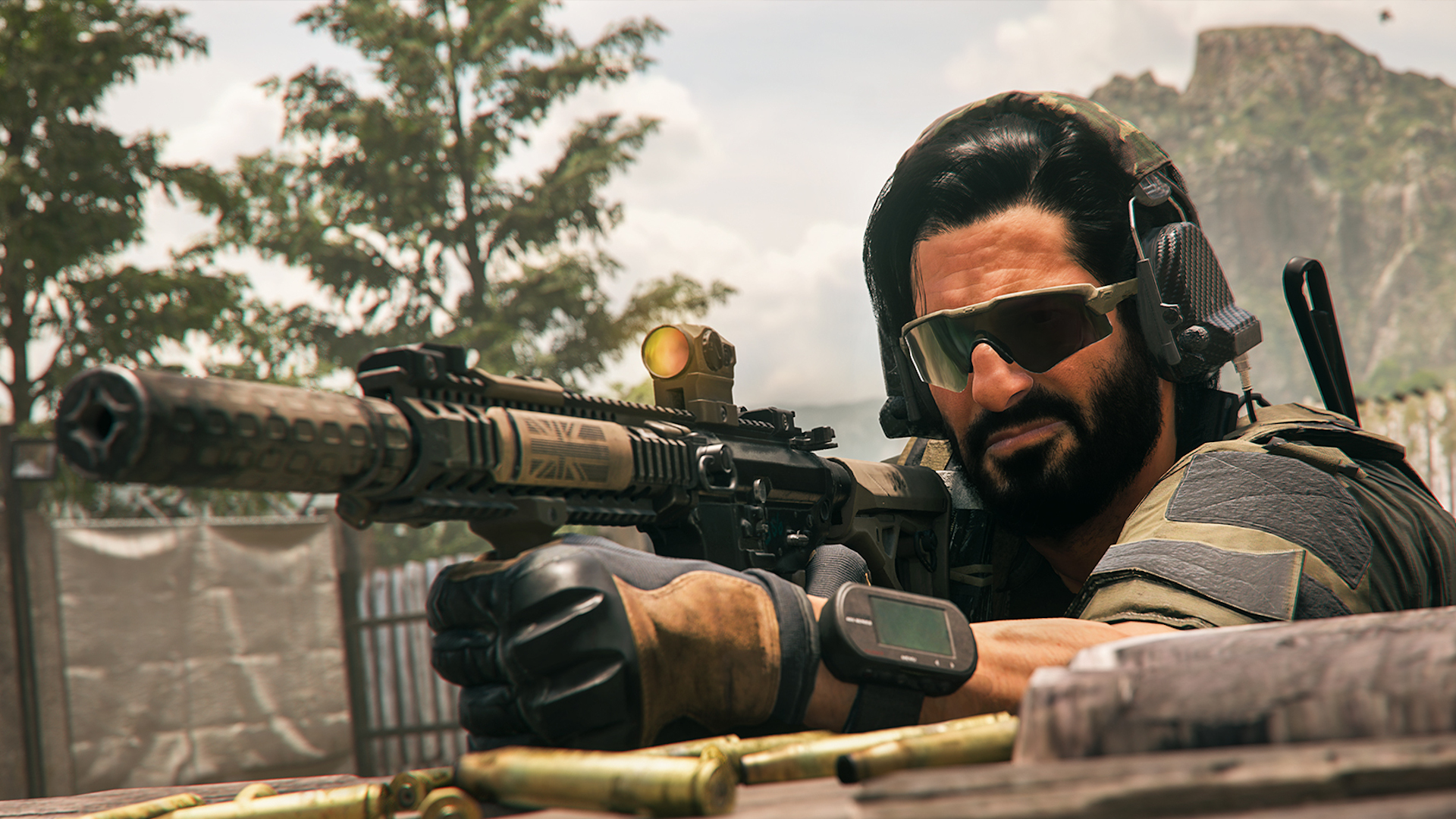
Earlier this year I heralded the rising popularity of the extraction shooter, a PvPvE format that melds the sandbox combat of the battle royale genre with individualized goals that aren't solely survival ("The future of battle royale is here and there's no circle"). At that time, I proposed that Hunt: Showdown, with its challenging AI obstacles, gnarly boss fights, and punishing-but-fair permadeath is the best blueprint we've seen yet for the extraction shooter.
That's still the case at the end of 2022 (because Hunt is just really that good), but I didn't anticipate that so many new takes on the extraction shooter would crop up this year. As developers seek out what comes next when players burn out on encroaching circles and randomized loot, the burgeoning PvPvE genre is becoming an increasingly attractive pivot.
Entirely new genres of videogames are rare and exciting developments, but it's unclear whether extraction will eventually become the biggest shooter sub-genre, or remain as a rich niche that, for whatever reason, doesn't draw the crowds that battle royale does. Until recently, the most successful extraction shooters had only a fraction of the playerbase of the biggest battle royales.
That may soon be changing now that one of the largest entertainment franchises in the world, Call of Duty, has entered the fray. Of the three new extraction shooters of 2022, I only currently recommend one (with caveats). We're definitely still in the genre's experimental phase, in which there are no established rules, direct imitation is rampant, and jank is common.
How did extraction shooters fare in 2022?
The Cycle: Frontier has a nice map and not much else
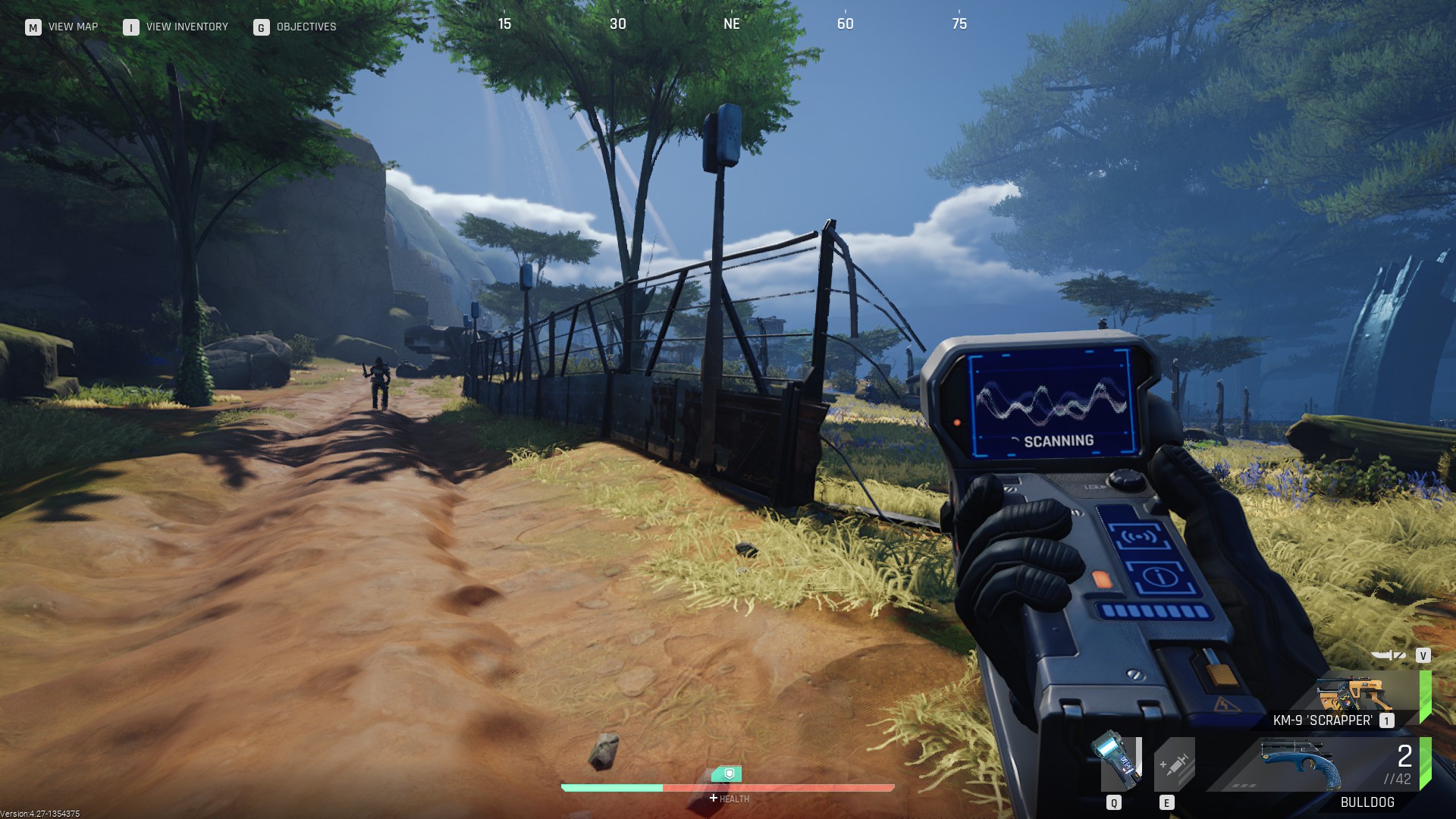
The Cycle: Frontier rose from the ashes of a very different game. Frontier is actually developer Jager's second crack at The Cycle, which originally launched in 2019 as an open world survival game closer to DayZ. When that didn't take off, Jager went back to the drawing board and reemerged this year with The Cycle: Escape From Tarkov.
I had a good feeling about The Cycle: Frontier that dwindled every hour I sunk into it. Its pair of alien planet maps are dense collages of vibrant forests, rivers, and hilltops with goopy foliage and wildlife that looks like it could've been spit out of No Man's Sky algorithm. I also like the guns, a blend of modern ballistic rifles, DMRs, and SMGs with a hint of laser 'pew pews' in the sound mix. The fundamentals are pretty damn good, so it's a shame the framework that surrounds Frontier is so monotonous. I got bored pretty fast once I realized Frontier's core loop is more about looting than fighting—almost every quest on my docket is a chore, requiring endless rummaging through tables, cabinets, and chests to tick off a list. Meanwhile, the constant threat of other players interrupting an hour-long gathering quest with a sudden ambush never sat right with me, especially when facing fully-kitted space marines with helmets and armor that just seemed to ignore my wimpy bullets.
I may not be The Cycle's biggest fan, but it has certainly maintained a community in the months since launch, averaging around 2,000 concurrent players on Steam.
Keep up to date with the most important stories and the best deals, as picked by the PC Gamer team.
Marauders is fun, but early
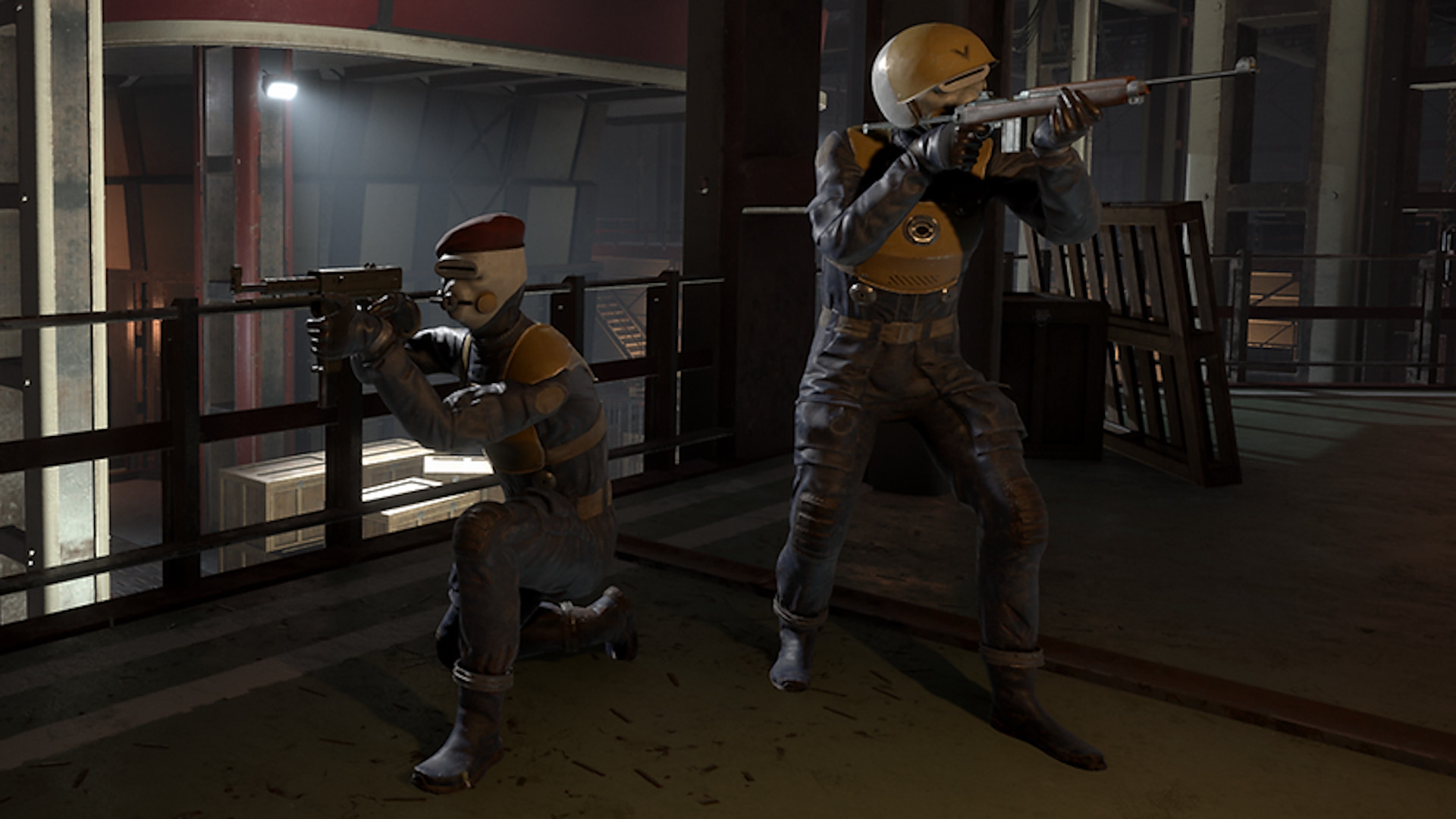
The most original extraction shooter of the year came from the smallest outfit of the bunch, Small Impact Games' Marauders. Another tactical FPS that attended the Tarkov school of kevlar vests, candy bars, and water bottles, Marauders (out in early access) is also about entering and leaving maps with a full backpack, but with a twist—space combat.
There just isn't much to ship combat at the moment.
On-foot combat is lethal and tense, though its arsenal of WW2 and Cold War-era rifles aren't quite as responsive or fun to use as other milsims like Tarkov or Squad. Marauders' dieselpunk aesthetic is distinct for the genre, and creeping around claustrophobic utility hallways, pitch-black control rooms, and precarious scaffolding is a different kind of intensity than I get Hunt: Showdown. In Hunt, I'm always worried about not perceiving a threat 100 meters away, but in Marauders, I'm more worried about recognizing the infiltrator hiding in the darkest corner of the room.
As for the spaceships, squads deploy in ships placed on the edges of a space arena and then race to dock at a central facility. I put a few hours into Marauders when it came out this year and was most disappointed by this promising space phase. There just isn't much to ship combat at the moment. You either bombard ships with grenade launchers or take the Sea of Thieves approach of boarding enemy ships via smaller breaching pods. That's assuming you can catch up to a ship before it makes the brief flight to an exit, which you usually can't unless you camp outside the facility for the whole match.
Checking in with Marauders this month, I'm encouraged to see that an upcoming update will add a new AI boss, The Red Baron, that roams the skies in a snazzy red jet.
Warzone DMZ is the unexpected star of this year's Call of Duty
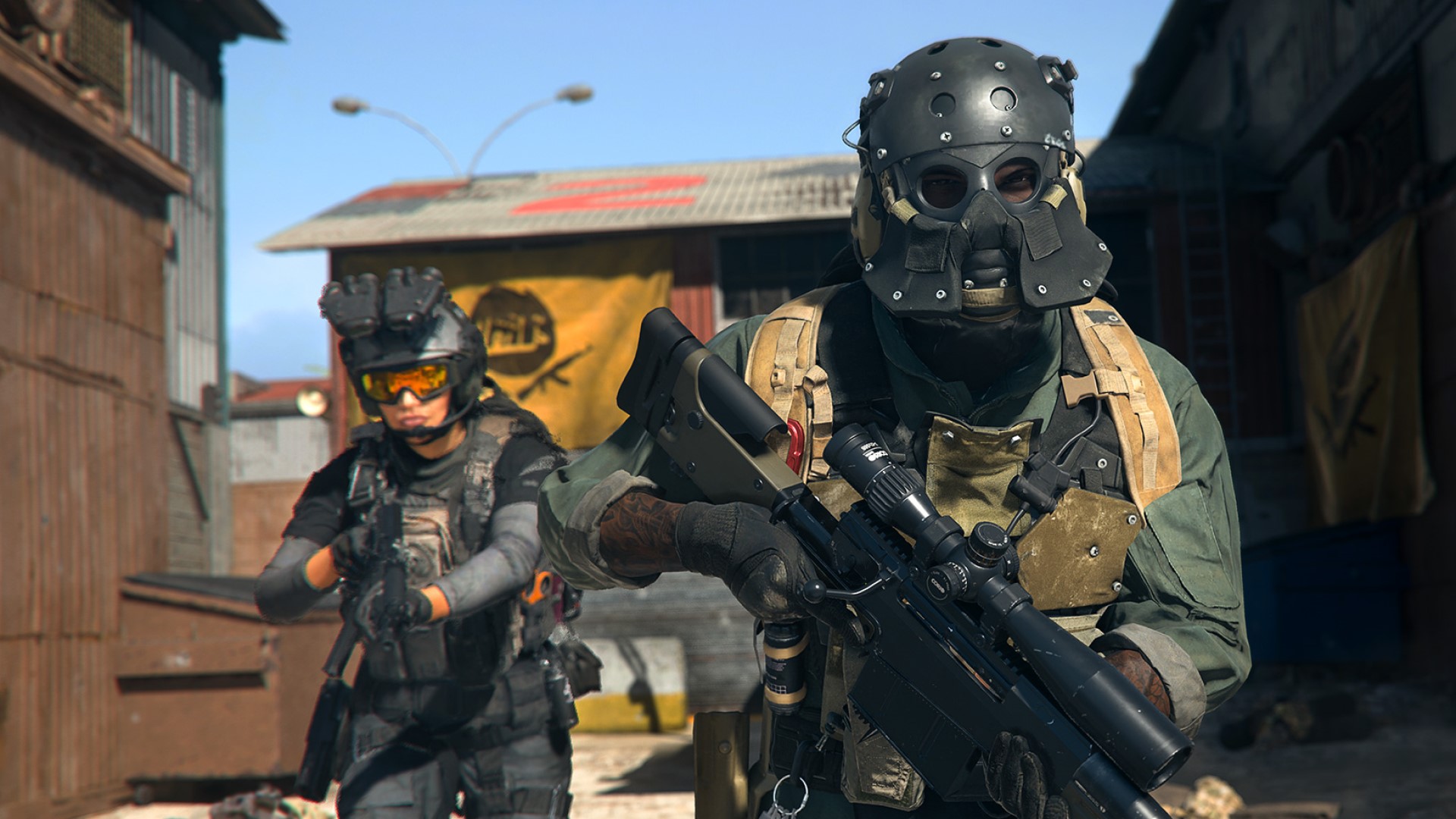
Activision surprised a lot of Call of Duty fans when it announced that Warzone 2's established battle royale mode would be accompanied by DMZ, a PvPvE extraction mode that is more about fighting AI than players. I was skeptical that an extraction mode adapted from a primarily battle royale game would work, but DMZ is packed with potential.
Gun customization, already a strength of Call of Duty in general, is the one area where DMZ should've stuck to Tarkov's script.
Though it borrows from Tarkov in some areas (looting and selling random garbage, grinding for insured weapon slots), DMZ is significantly different from the other games mentioned here. The sole map, Al Mazrah, is so big that you're likely to never encounter real players in most matches, which is fine, because there are plenty of vicious AI enemies spread thick across the barrens. With new vehicles, mission types, and a revamped inventory system, every match of DMZ feels like an MMO playing out in 30-minute chunks. My biggest problem with DMZ is a familiar one—here too, faction missions are mostly busywork like "capture a SAM site" by holding E on it or literal grocery lists like "extract 10 stim shots". DMZ also has no persistent wallet for buying new weapons to deploy with. Cash is all earned per-mission and converted to XP upon extraction. You can buy a limited selection of contraband guns from in-match buy stations, but you can't customize them.
Gun customization, already a strength of Call of Duty in general, is the one area where DMZ should've stuck to Tarkov's script and allow players to build a gun throughout a 30-minute match by finding and refitting attachments found on the map. Not only would looting be more rewarding than pocketing a bunch of junk worth arbitrary amounts of cash, but it'd add a layer of stakes and risk-taking that DMZ sorely lacks right now. The only thing you really put on the line in DMZ is your pre-customized gun, and you can get that back just by waiting.
Now a month after launch, DMZ is the Warzone mode that I continue to see the most buzz about. Call of Duty is now, technically, the most popular extraction shooter around. I think DMZ has a ways to go before it's worth sinking lots of time into, but Infinity Ward and Raven Software clearly have bigger plans for it throughout the next year.
Where do extraction shooters go in 2023?
The best extraction shooters have goals
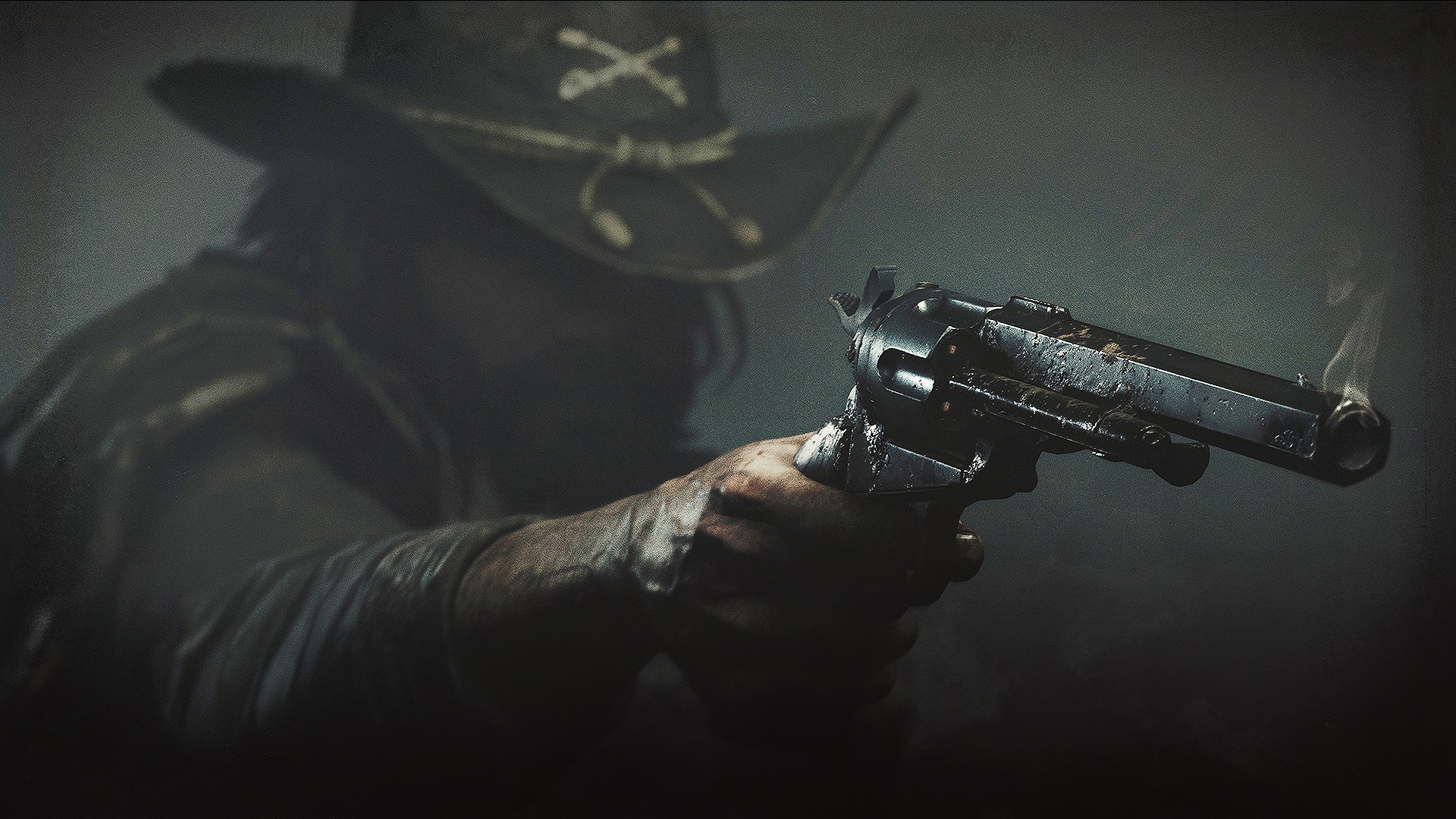
In a post-DMZ world, I suspect extraction shooters are about to outgrow their obscurity and become a widely-recognized multiplayer format. As a fan I'm excited, but I'm also concerned about what type of extraction shooter is becoming the norm.
It's no coincidence that 2022's crop of extraction shooters all have boring goals, monotonous loot, and are trying hard to be Escape From Tarkov. Speaking from limited experience, I think this approach misses what people like about Tarkov. Faction missions are just the loose structure around the true meat of the game—its high-stakes firefights, tiered loot lust, and in-depth gun customization. What works for one extremely hardcore milsim with a community of real-world weapon enthusiasts hasn't translated as well in a sci-fi FPS with made up guns or its dieselpunk competitor with deliberately lower-tech loadouts.
The Cycle, Marauders, and even Warzone DMZ are copying the wrong extraction shooter. If prospective shooter devs are looking for ideas, Hunt: Showdown is right there with the most unique arsenal of guns in any modern game, a fair permadeath economy, and most importantly, a prize to fight for other than each other's loot. Hunt contrasts its asymmetrical firefights with a secondary win condition: kill a boss and extract with its soul for XP that'll unlock new guns for purchase, or hunt other players for bigger rewards. Hunt's boss battles generate zones of action where players are most likely to intersect. Participation is encouraged, but not required.
Hunt understands that sandbox shooters are more fun with structure. It's great to have the freedom to choose your next goal, but the goals to choose from have to be fun. I hope the next wave of extraction shooters reflect that.

Morgan has been writing for PC Gamer since 2018, first as a freelancer and currently as a staff writer. He has also appeared on Polygon, Kotaku, Fanbyte, and PCGamesN. Before freelancing, he spent most of high school and all of college writing at small gaming sites that didn't pay him. He's very happy to have a real job now. Morgan is a beat writer following the latest and greatest shooters and the communities that play them. He also writes general news, reviews, features, the occasional guide, and bad jokes in Slack. Twist his arm, and he'll even write about a boring strategy game. Please don't, though.

